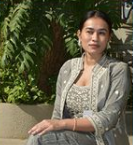Fiction:
Fictional storytelling allows writers to invent characters, worlds, and scenarios. Within fiction, there are multiple sub-genres:
- Science Fiction: Explores futuristic concepts, technology, and speculative ideas.
- Fantasy: Involves magical elements, mythical creatures, and fantastical realms.
- Mystery: Focuses on solving puzzles and unraveling hidden truths.
- Romance: Centers around love, relationships, and emotional connections.
- Historical Fiction: Sets stories in past eras, often blending real events with fictional characters.
Poetry:
Poetry is a genre that emphasizes rhythm, language, and emotional resonance. Different forms of poetry include:
- Haiku: A traditional form with three lines and a syllable pattern of 5-7-5.
- Sonnet: Typically composed of 14 lines and adheres to specific rhyme schemes.
- Free Verse: Embraces flexibility in rhythm and structure, allowing for creative expression.
- Narrative Poetry: Tells a story through verses, often combining elements of fiction and poetry.
Nonfiction:
Nonfiction writing encompasses factual narratives and informational pieces. Sub-genres include:
- Memoir: Focuses on personal experiences and reflections.
- Biography: Chronicles the life and achievements of a real person.
- Essay: Explores topics from personal perspectives, often conveying opinions or insights.
- Journalism: Involves reporting news, events, and factual information.
Drama:
Drama involves crafting scripts for theatrical performances, including:
- Plays: Feature dialogues, scenes, and stage directions for live performances.
- Screenplays: Designed for film or television, with instructions for actors, directors, and camera angles.
Creative Nonfiction:
This genre combines factual information with creative narrative techniques. Examples include:
- Travel Writing: Chronicles personal journeys and experiences in different locations.
- Nature Writing: Explores the natural world, often merging scientific observations with personal reflections.
- Narrative Journalism: Uses storytelling techniques to present news and real-world events.
Horror:
Horror writing evokes fear, suspense, and a sense of the uncanny. Sub-genres include:
- Supernatural Horror: Involves paranormal or supernatural elements.
- Psychological Horror: Focuses on the psychological impact of fear and dread.
- Gothic Horror: Incorporates eerie settings, dark atmospheres, and melodramatic themes.
Children’s Literature:
Designed for young readers, this genre includes:
- Picture Books: Combines simple text with vibrant illustrations.
- Middle-Grade Novels: Targets readers aged 8 to 12, exploring relatable themes.
- Young Adult (YA) Fiction: Tailored for teenagers, addressing coming-of-age and identity themes.
Fantasy:
Fantasy writing transports readers to imaginative worlds and settings. Sub-genres include:
- High Fantasy: Features epic quests, magical beings, and intricate world-building.
- Urban Fantasy: Integrates fantasy elements into contemporary urban settings.
- Portal Fantasy: Involves characters traveling from the real world to a fantasy realm.
In Conclusion:
Exploring various genres in creative writing enables you to experiment, develop your skills, and find your creative niche. Each genre offers distinct challenges and rewards, allowing you to tailor your storytelling approach to different themes, tones, and audiences. By immersing yourself in a range of genres, you can deepen your understanding of storytelling techniques and uncover new ways to convey emotions, themes, and ideas. Whether you’re drawn to fiction, poetry, nonfiction, or any other genre, each genre provides a canvas for your imagination and a platform for your voice to shine.

Jass
Jass earned her bachelor’s degree in Computer Science, transitioning into a profession as a content writer. With a keen mastery of words, she takes pleasure in expressing her thoughts and ideas creatively. Her ability to captivate audiences with her imaginative write-ups stands out as one of her notable strengths.



